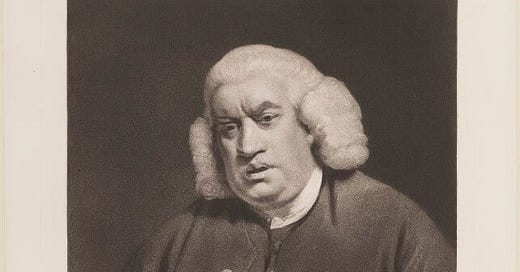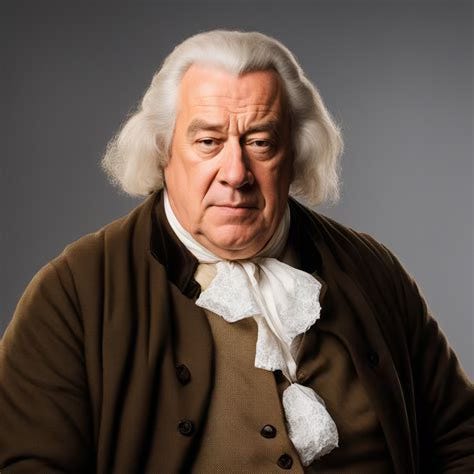Another ‘patch'
A paltry fellow. Obsolete. What a py’d ninny’s this? thou scurvy patch? Shakesp.
Jane Davis’ interesting posts about reading Boswell’s Life of Johnson, come at an opportune time as Saturday (January 11th) saw the new year's first meeting of the Johnson Society of London at the Dickens Museum in Doughty Street.
Long time member Robert Plaskett delivered a brilliant lecture about Johnson's Dictionary as a work of literature. It was an entertaining, informative and at times moving tour de force, with Robert quoting many of Johnson's definitions and example from memory.
'He has qualified my mind for thought,' Joshua Reynolds said of his friend Johnson.
Robert Plaskett has read the Dictionary from start to finish not once but twice. He also happens to have papered a wall of his flat with pages copied from the Dictionary. He is something of a fan.
His analysis is that in his Dictionary, Johnson has created a work full of definitions and example quotations that are in conversation with each other, as Celine Luppo McDaid, the Director of Dr Johnson's House put it in her vote of thanks, 'across a landscape of words'.
Johnson's writing has been described as 'language saturated with thought' and Robert highlighted the way Johnson's moral imagination is always present.
But more than that, Robert discerns in the interplay of definitions and quotations in the Dictionary, a dynamic struggle between two fundamental aspects of Johnson's character: the 'Caesarean' ego and 'the humble drudge'. The former is summed up in the statement 'There is none greater in this house than I' as one of the quotations (from The Book of Genesis) in his definition of the first person singular pronoun puts it that sets an aspect of Johnson's character on a par with Milton's Satan. The latter sums up the humility of Johnson's labour of love as a lexicographer in service of the language and literature.
Lexicographer: A writer of dictionaries; a harmless drudge, that busies himself in tracing the original, and detailing the signification of words.
The ego says 'I must create my own system of be a slave to someone else's'. The lexicographer as drudge, with a love of the commonplace and the wide diversity of literature that has gone before says 'I am a servant of the language'.
Robert sees this as a battle for the soul of the language that put Johnson's physical health and sanity on the line.
But through it, in Robert's words, 'Johnson forged the consciousness of his race'. By that he doesn't mean some horribly insular concept, but rather a sense of community across identites and origins.
When Robert hears people say 'Don't patronise me,' he hears the original and authentic voice of Johnson from the dictionary, the heartfelt voice of challenge to patronage, to lords and masters. Today, when we use words from his Dictionary, Robert sees Samuel Johnson standing behind the verbal formulation: 'He binds us all together'.
His comments echoed Simon Schama's in the first episode of his BBC 2 programme Story of Us: '...if culture has any meaningful purpose at all, surely it is to help bring us together, however fleetingly, in spite of our differences.'
You can find out more about The Johnson Society of London here.
And about The Johnson Society of Lichfield here.
You can explore Johnson’s Dictionary here.
And you can consult an AI recreation of Samuel Johnson here.







'...nothing is little...'
I'm thinking of carving these words into my writing desk.
Thank you for this John.
Nice one John!